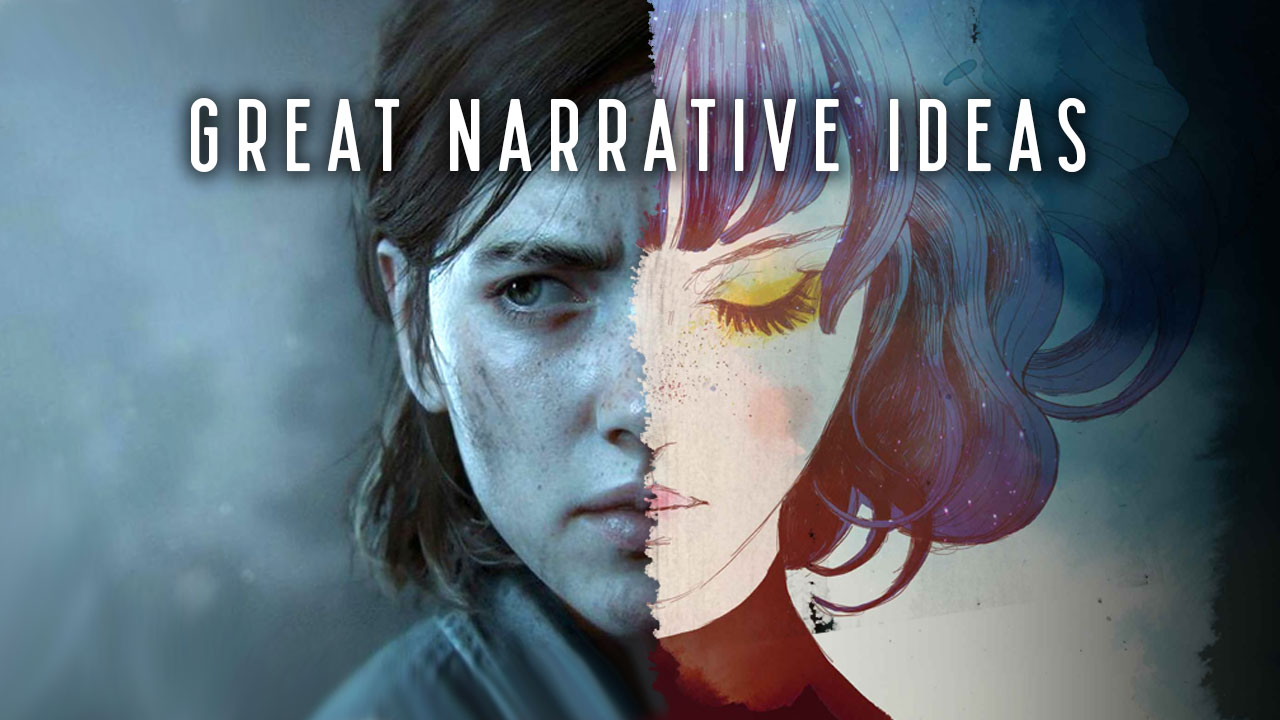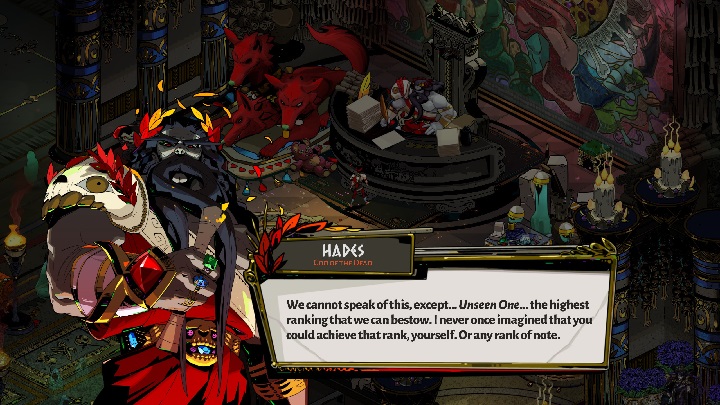Hades. 8 Games With Brilliant Ideas for Narrative

- 8 Games With Brilliant Ideas for Narrative
- The Last of Us 2
- GRIS
- BioShock Infinite
- Gothic
- God of War (2018)
- Hades
- Red Dead Redemption 2
Hades
- Genre: isometric roguelike
- Year: 2020
- Platforms: PC, PS4, PS5, XOne, X SX/S, Switch
- Developer: Supergiant Games
Supergiant Games displayed great finesse when developing their latest work - Hades. The narrative trick chosen by the developers is that the plot of the game has been inextricably linked with the gameplay. One wouldn't make much sense without the other.
It's especially interesting because Hades is a so-called roguelike - a genre that punishes the player for dying by forcing them to start the game from scratch. At least partially, as some of the items you unlocked are carried over to the next approach. How to combine this type of gameplay with an intriguing storyline? It's not easy, as portrayed by some amazing roguelikes, such as Dead Cells or Children of Morta , which, instead of a plot, offer a fictional background, which - although very interesting - wasn't presented in an especially accessible way (I've discussed the example of Dead Cells in a separate article).
In Hades, not only do we experience an actual storyline, it's also really good, and moreover - consistent with the gameplay. We play as Zagreus, the son of the titular god of the underworld, who is fed up with his father's tyranny and wants to break out of his kingdom to find his mother. Hades, however, dislikes the idea of letting his son go, so the protagonist has to come out alive after facing hordes of monsters taken out of Greek mythology, before he finally gets to see the light of day. He dies many times along the way, but after each death, he is taken by Styx to the beginning of his journey, to try once more soon after.

Supergiant Games made the most boring aspect of the game (at least in theory) only a little less engaging than the sensational, dynamic combat. When trying to escape from the underworld, we obtain various items that we can give to NPCs residing in the kingdom of Hades. This way - and also by talking to them - we develop their particular storylines. There are so many characters that basically each time the main character dies, you get opportunity to listen to new dialogue and learn something interesting.
Thus, not only do Zagreus' numerous deaths become part of the story, they also bring the player closer to understanding the plot in full. It gets even more interesting when the recalcitrant son defeats his father for the first time - who else would eventually stand in his way (as if Cerberus would ever harm you!) - and reaches the outside world while learning the truth about his family. At this point, both the story and gameplay of Hades are in full bloom, and the player has to replay the game, constantly increasing the challenge level, to learn all the secrets. This makes the game impossible to put down at times.
DEATH LOOP
A similar theme was used in last year's Deathloop by Arkane Studios. There are, however, significant differences - although the game has some of the necessary elements, it's not quite a full-fledged roguelike. Subsequent replays - during which the main character doesn't have to keep dying, although it's not especially difficult to achieve - are simply meant to bring the player closer to solving Blackreef island's riddle.
While in Hades you can complete the game on your first attempt (it would require tons of skill, but - theoretically - it's not impossible), in Deathloop, you can't discover everything in one go - you have to go through various stages in different combinations, while taking on different activities to find the right path to your goal.




